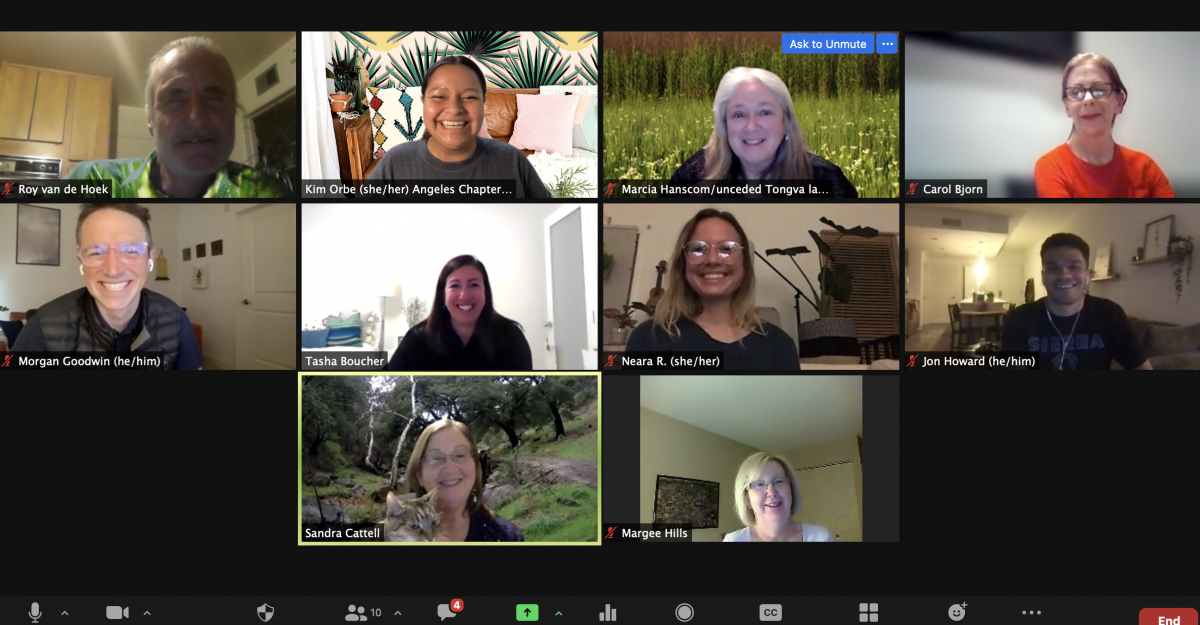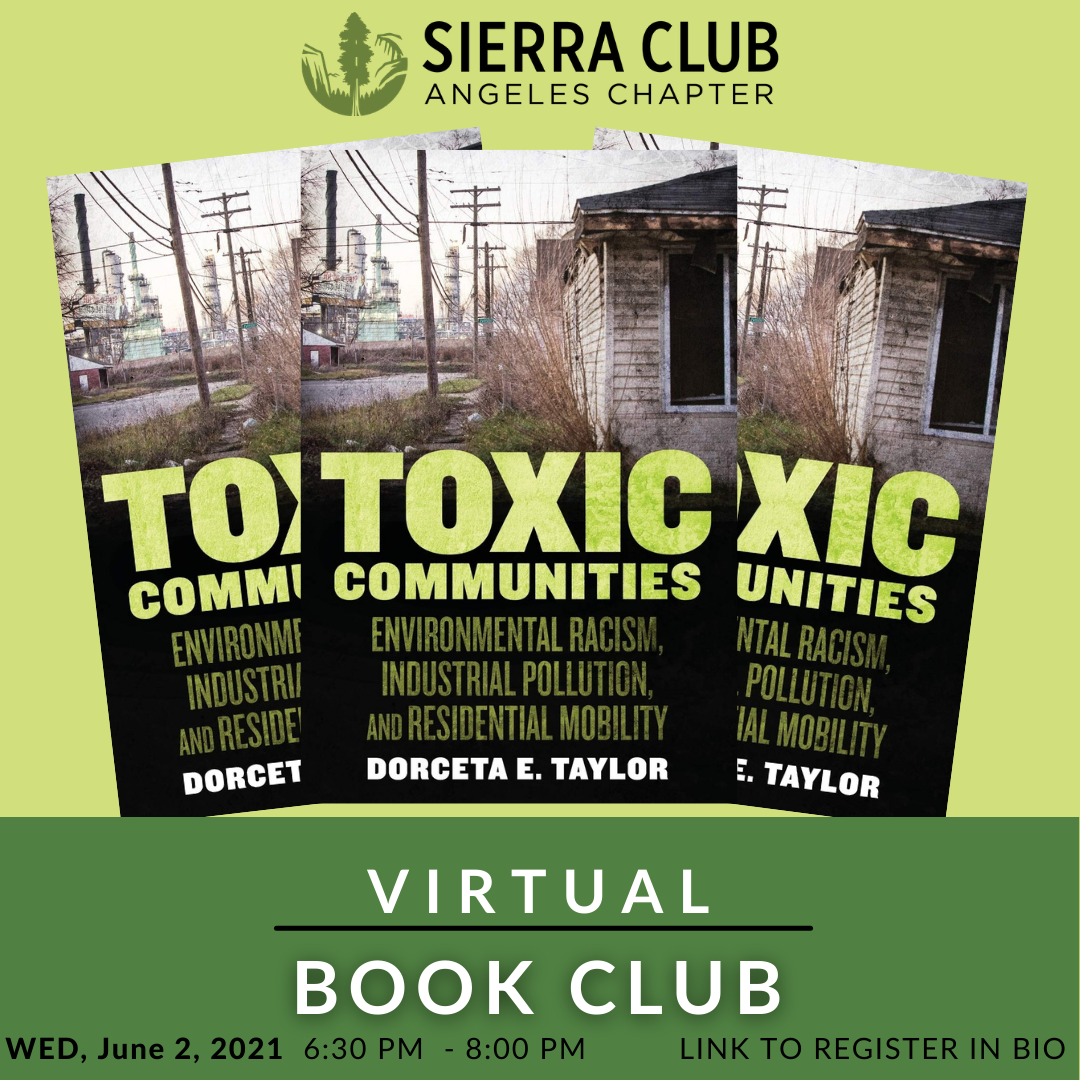April 5, 2021
The Angeles Chapter staff has committed to organizing a book club that focuses on themes centered on Environmental Social Justice. Our intention is to create a space where individuals from all ages and backgrounds can come together to read and discuss the intersectionality of issues related to race, conservation, and the environment.
The Angeles Chapter staff hosted its first staff-led book club in March and gathered to discuss the first book of a series, Braiding Sweetgrass by Robin Kimmerer. We chose Braiding sweetgrass as we recognized that there has been an almost complete erasure in our history books in recognizing the value of Indigenous wisdom, and scientific knowledge, especially related to the environment and Earth. An hour and a half came and went too quickly. We spent the majority of our time exploring and discussing a variety of themes that were highlighted in the book. It was such a touching experience to hear from everyone, their takeaways, and how Braiding Sweetgrass has impacted their lives.
Braiding Sweetgrass was such a great book to kick off our book club because it was centering and humbling. We had great conversations on topics from the book such as reciprocity, the culture of gratitude, and the gift economy. This book was very eye-opening and shared a greater understanding and perspective of how we view our relationship and connection with Earth, her gifts, and our non-human kin.
We are showered every day with gifts, but they are not meant for us to keep. Their life is in their movement, the inhale and exhale of our shared breath. Our work and our joy is to pass along the gift and trust that what we put into the universe will always come back.”
Robin Kimmerer gifts us with her indigenous wisdom, scientific knowledge, life experiences and allows us the opportunity to reflect on what we were learning throughout the book by asking readers open-ended questions. How do we choose to see the natural world? As property or a gift? What is our role and responsibility in reciprocity to Earth and her gifts? How can we express our gratitude and responsibility for the gifts of the land?
It was a privilege to hold space with the individuals who participated in this book club. Organically, a community was created in less than two hours. Individuals spoke from the heart, listened with intent, and created a genuine space of curiosity and a commitment to better understanding each other and Earth as we are all interconnected.

If you missed the book club, no problem! The next book and date have been set. This event is FREE for anyone who wants to participate. As we continue to organize our book club around environmental social justice issues, we have selected our next read to be Toxic Communities: Environmental Racism, Industrial Pollution, and Residential Mobility by Dorceta Taylor and is set for Wednesday, June 2nd from 6:30-8:00 pm. There are many injustices to our communities of color have experienced in past (and recent) history and this past year has been no exception. The pandemic has further exposed many of the public health and environmental injustices and disparities that continue to exist in our communities.

We selected Toxic Communities by Dorceta Taylor to contribute to our ongoing learning around the class and racially motivated inequities, and discrimination in our institutions of government. This book will help us gain a clear understanding of the long histories of racial segregation and housing discrimination and let us continue to learn and explore Toxic Communities, the study of race, the environment, and current events. Join us as we dive into this informative and comprehensive book to explore what we can do as environmental justice advocates of our most at-risk communities. You can register for this next featured book club event here, we hope to see you there!
Kimberly (she/her) is the Conservation Program Manager for the Angeles Chapter of the Sierra Club. As one of the organizers of the book club, Kim is thrilled to be creating a space in the chapter where community members can gather to continue the important discussions and work around environmental social justice.